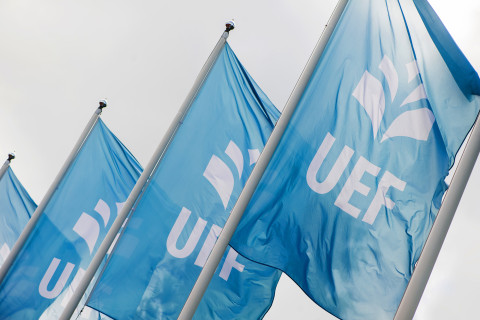A Master’s thesis project often triggers mixed emotions. Regardless of the field of study, students tend to struggle with how to find relevant sources and how to use them correctly. In response to this challenge, the university’s School of Computing and Foreign Languages at the School of Humanities have joined forces and are preparing guidelines for students to alleviate any possible thesis-related agony they might experience.
“These guidelines are mainly based on digital solutions,” says Sirpa Salenius, Senior Lecturer with title of Docent in English-language literature and culture.
Last spring, a working group addressing the School of Humanities learning environment secured funding for a project that focuses on interactive digital tools to support thesis writing. In addition to the working group members, Senior Lecturer Erkki Pesonen from the School of Computing also joined the project, bringing in expertise in computer science.
“The goal of the project is to develop digital tools to help students working on their thesis. For many students, writing the thesis is such an overwhelming endeavour that it delays their graduation.”
The group has developed during the project applications of digital tools to support thesis writing, all of them enabling students to work independently so that it is possible to make progress even at times when their thesis supervisor is unavailable.
“Our project is now coming to an end, and we’ll present our results in a closing seminar at the end of the month.”
Tools to help create thesis outline
When it comes to thesis-related agony and the challenges of thesis writing, the best experts are of course students themselves. Indeed, students who are currently in the process of writing their thesis or about to start the project attended the workshops.
“Already now, I would say that the apps we have developed are useful and they have also helped me with the writing of my own Master’s thesis,” says Heidi Ropo, a student of English language and culture.
Anna Karvonen, a fellow student of hers, concurs:
“For instance, we have used Padlet to create an outline for our theses, and it has been hugely beneficial. Previously, everything had to be written down in a Word document or by hand in notebooks. In the end, all notes were chaotically scattered in different places. Now that I’m using Padlet, I can gather all my ideas in one place that has a clear visual structure. This has also helped with timetables.”
“It is great that we students have had the opportunity to have a hands-on experience and to create real and usable materials for the university,” says Timo Jalovenko, a student of Russian, summing up his thoughts.
Jussi Huisman, a student of English language and culture, says that he wanted to join the project because it coincided with his own interests: he studies information and communication technology pedagogy as a minor subject.
For project-related communication and discussion, the students have used the Teams group chat software, which they also consider useful.
According to the students, the greatest challenges of thesis writing – regardless of the field of study – are related to the choice of topic, finding relevant material and narrowing it down.
“We seek to address all these challenges. For example, we are working on a video to support thesis writers,” Ropo explains.
When all of the materials created in the project are ready, they will be posted on the Kamu student portal, where they will serve as general guidelines that can be used by all students of UEF.
The outcomes of the project’s workshops will be presented at the Joensuu Campus on 21 November (Agora building, room AG105, starting at 15:15, in Finnish). The presentation session is open to everyone interested.

